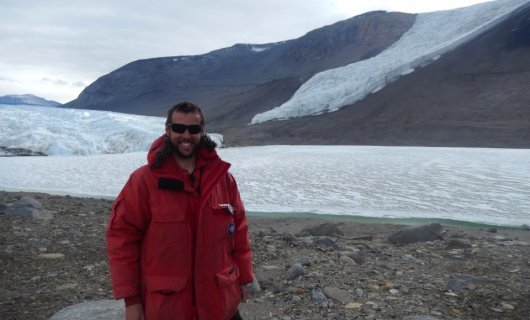Soil bacteria and their invertebrate consumer respond differently to warming and freeze-thaw cycles, in the Antarctic Dry Valleys

Recently published research by IDREC researcher Matt Knox and co-authors show decoupled responses of soil bacteria and their invertebrate consumer to warming, but not freeze-thaw cycles (FTCs), in the Antarctic Dry Valleys. Using a laboratory microcosm experiment the authors investigate how temperature variability affects soil bacterial cell numbers, as well as the abundance and traits of soil microfauna (the microbivorous nematode Scottnema lindsayae). The findings suggest that higher occurrence of FTCs in cold ecosystems will select for large body size within soil microinvertebrates while reducing their abundance overall. In contrast, warm temperatures without FTCs could lead to divergent responses in soil bacteria and their microinvertebrate consumers, potentially affecting energy and nutrient transfer rates in soil food webs of cold ecosystems.
Read the full publication at http://onlinelibrary.wiley.com/doi/10.1111/ele.12819/full
(Photo : Matt Knox ,The shores of Lake Bonney in Taylor Valley, Antarctica.)